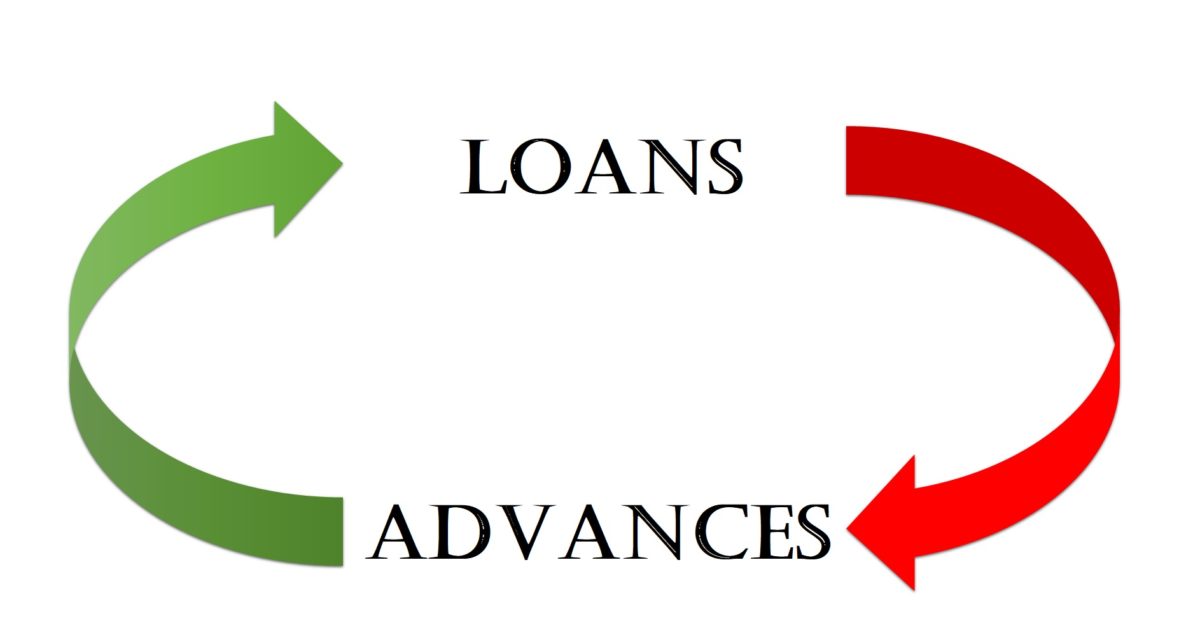Loans and advances appear similar, but technically they are very different from one another. Both are financial supports provided by banks or financial institutes to help their customers in financial need.
Both loans and advances need to be paid off within a period along with interest. But the fundamentals of these financial terms aren’t the same.
What Is A Loan?
A loan is an amount given out in the form of debt by the financial organization to an individual or a firm. The amount has to be repaid along with interest over a period. The interest rate, repayment period, amount to be sanctioned, and the lender and the borrower mutually agree on several other terms before any fund transfer is initiated.
Loans are long-term financial support provided by lenders. The tenure of loans can be for a decade or even more, based on the terms agreed by both the parties. The funds can be used for any purpose, and the lenders don’t question much about the definition of a loan. But they do check the creditability of the borrower. Lenders make a thorough investigation of the borrower’s credit history and financial status.
Categories Of Loan
Loans are further categorized into few types based on some factors. Based on security, there are two categories of loan, namely:
- Secured loan: Such loans require collateral. They can be considered as a loan against property.
- Unsecured loan: Such loans require no collateral but have a higher interest rate compared to that of secured loans. They are mostly personal loans.
Based on repayment, loans can be categorized into three parts:
- Time loan: The entire loan amount along with interest is paid at a specified date
- Installment loan: The loan amount is paid partially in small sums along with a part of the interest over a specific period. Based on the terms signed, the installments can be equally divided over the total period, or it can be paid in a lump sum.
- Demand loan: The amount has to be paid upon request or demand of the lender.
What Is Advance?
An advance is a credit facility offered by financial organizations to business organizations to meet their short-term requirements. The terms of advances are decided by the RBI and the bank that is lending the amount. The interest rate is relatively cheaper than loans, thus making it suitable for business purposes.
Types of advances
Advances are mainly categorized into four types, namely –
- Overdraft: Allows to withdraw money even if the bank account doesn’t have the necessary fund. Overdraft has a limit.
- Cash Credit: Allows to make transactions without having a sufficient amount in the account until a specified credit limit.
- Bill Purchase: Advances granted by the bank upon pledging the limit
- Short-Term: The amount is given quickly all at once for a limited period.
Comparison Between Loans And Advances
While the purpose for use by the borrower is the same, loans and advances, have very distinct differences in various aspects. The table below helps to understand the differences between seemingly similar terms.
| Basis | Loans | Advance |
| About | Funding offered by the financial organization to meet a financial purpose | Funding offered by the financial organization to meet short-term financial requirements |
| Nature | A loan is generally a debt. It is mostly used by individuals. | Advance is a credit facility. It is mostly used by corporations to meet their requirements. |
| Duration | It offers Long-term repayment options | It offers Short-term repayment options, and need to be renewed. |
| Security | May require collateral security for loans against property. However, the eligibility for a personal loan does not demand collateral. | Collateral security or guarantee is a must, whether it is in the form of property or financial shares. |
| Legal Formalities | It involves several legal formalities | Lesser legal formalities compared to loans |
Conclusion
Both loans and advances have their benefits. Both serve several different purposes, and the better choice entirely depends on the needs of the borrowers. Hence, it would help if you looked into the financial terms of both loans and advances to select which suits you for the moment.










